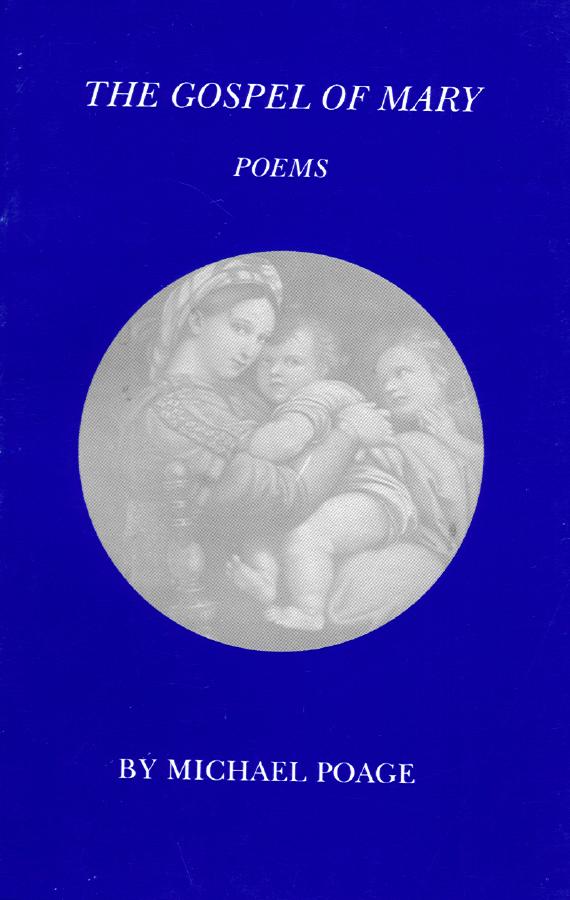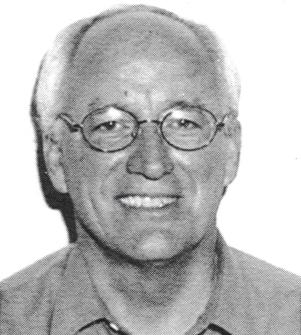 ___
___ ___
___
While I still intend to feature another Kansas writer on this home page each month, I am taking a new tack in 2002. I plan to pass the presentation on to someone who may know the featured writer better than I do, to begin with other members of the board of The Woodley Press. To initiate this series, for January of 2002, Denise Low-Weso, last year's Woodley Press president and this year's vice-president and manuscript selection committee chairperson, will present Michael Poage, who is a Woodley Press author, his The Gospel of Mary, edited with an Introduction by Denise, published by The Woodley Press in 1997, but he has more recently published another book of poetry, god won't overlook us, with the Penthe Press in Lawrence, Kansas (2001), again edited with an Introduction by Denise.
 ___
___ ___
___
By Denise Low-Weso:
Michael Poage comes to Kansas by way of the legendary
1970s Montana University creative writing department that included Richard
Hugo, Madeline DeFrees, and William Kitteridge. Many remarkable writers
developed in this mix, including James Welch, Art Homer, Richard Robbins,
Carol Ann Russell, and many others. Poage received an MFA from this
program.
Poage left Montana to study at the San Francisco
Theological Seminary, where he received a divinity degree, and he has held
positions in Congregational churches in Council Grove, Lawrence, and Wichita.
This varied background contributes to a sophisticated stance, with secular
and religious perspectives.
Poage published books in two phases: first
Black Stone Press in San Francisco, which published BORN
and Handbook of Ornament in the 1970s;
and then recent books from Kansas presses. Woodley published Gospel
of Mary (1997), and Penthe, in Lawrence, published god
won’t overlook us (2001).
Throughout his writings, Poage explores the mystery
of human incarnation. His poems are oblique, like the lessons of
life, so readers must shapeshift along with the images. The reward
is a dimension of words imbued with spirit.
The Black Stone Press books are out of print, but
they show Poage’s concern with encryption. The terse pieces are alphabetic
hieroglyphs--encoded symbols that turn back into themselves, with reversals
and interior voices, like “The History of Hair” from Handbook
of Ornament:
The narrative is fragments: Who is “us” in the second stanza, if not lovers? Is daylight birth? Like runes, the answers are hints, not full disclosures.Daylight is more
Than I asked for.The ground covered us
Like cold sleep
Falling around
Our ears.
These books are available from: Michael Poage,1655 Farimount, Wichita, KS 67208.Ecstasyyou hear the distant train
as you stretch
out on the bed
in the darkness
the air conditioner
cooling your skin
like rain
out on the street
and just by the look
in your voice
it is clear
you will soon be off
to see the music
for yourself